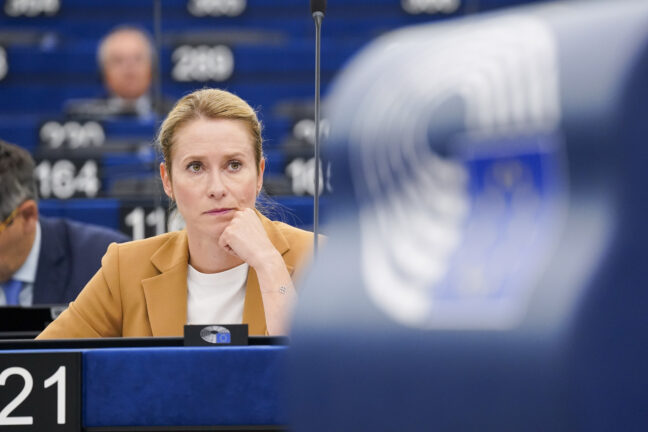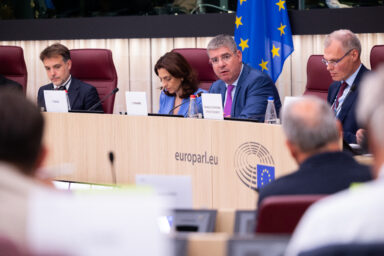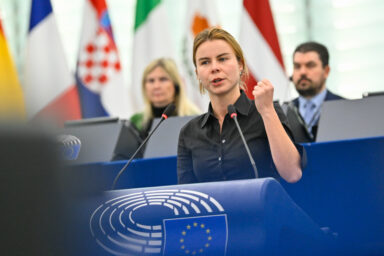The European Union has rolled out its 19th round of sanctions against Russia, significantly tightening restrictions on energy, finance, and digital assets in an effort to further constrict the Kremlin’s ability to fund its war in Ukraine. The package also extends measures to Belarus and steps up scrutiny of Russian diplomats amid growing security concerns.
The new package adds 69 individual listings and a wide set of economic restrictions aimed at sectors feeding Russia’s war machine — from oil and gas to banking and dual-use technologies. It also includes provisions to hold accountable those involved in the abduction of Ukrainian children and strengthens controls over diplomatic movements within the EU.
High Representative Kaja Kallas said the measures make it “increasingly difficult for Putin to finance his war,” adding that this latest move “will not be the last.”
Gas imports, purchasers of Russian crude
The sanctions introduce a phased ban on Russian liquefied natural gas imports — effective from January 2027 for long-term contracts and within six months for short-term ones — while tightening existing restrictions on Rosneft and Gazprom Neft. Several Chinese refiners and traders purchasing Russian crude are also included.
To target the so-called “shadow fleet” used to evade the oil price cap, 117 additional vessels have been banned from EU ports, and reinsuring ships linked to such operations is now prohibited.
You might be interested
Banks and traders
In finance, the EU has blacklisted banks and traders from Russia and several third countries accused of helping circumvent sanctions. A state-backed stablecoin, A7A5, and its issuers and platforms have also been sanctioned, with all related transactions banned inside the EU. European firms are now barred from engaging with Russia’s Mir and SBP payment systems or maintaining ties with entities in Russian special economic zones.
Russian diplomats must now notify member states before travelling within the Schengen area, a move aimed at countering intelligence activities and interference operations.
The EU is also sanctioning individuals and organisations linked to the deportation and forced assimilation of Ukrainian children, with a new legal criterion created to streamline future listings.
Military-industrial complex
Further restrictions extend to Russia’s military-industrial complex and its suppliers in China, the UAE, India and Thailand, along with expanded export bans on electronics, chemicals, and materials used in weapons production.
Additional measures require prior authorisation for all services to the Russian government and ban European providers from offering AI, high-performance computing, and commercial space-based services. Tourism-related services are also prohibited.
Belarus
Belarus also faces new listings and expanded trade restrictions aligning it more closely with those imposed on Russia, including limits on crypto-related payment systems and financial software.
The EU’s latest sanctions mark one of its most extensive packages yet, signalling a continued push to isolate Moscow economically and technologically while tightening the net around global networks that sustain its war effort.
The move comes at a moment when any momentum towards a ceasefire again stalled. Earlier this week, European countries shored up support for Ukraine agreeing that the current front lines in Ukraine should be frozen ahead of any peace talks. There had been plans for US President Donald Trump to meet with Russian leader Vladimir Putin in Budapest that unraveled quickly.











